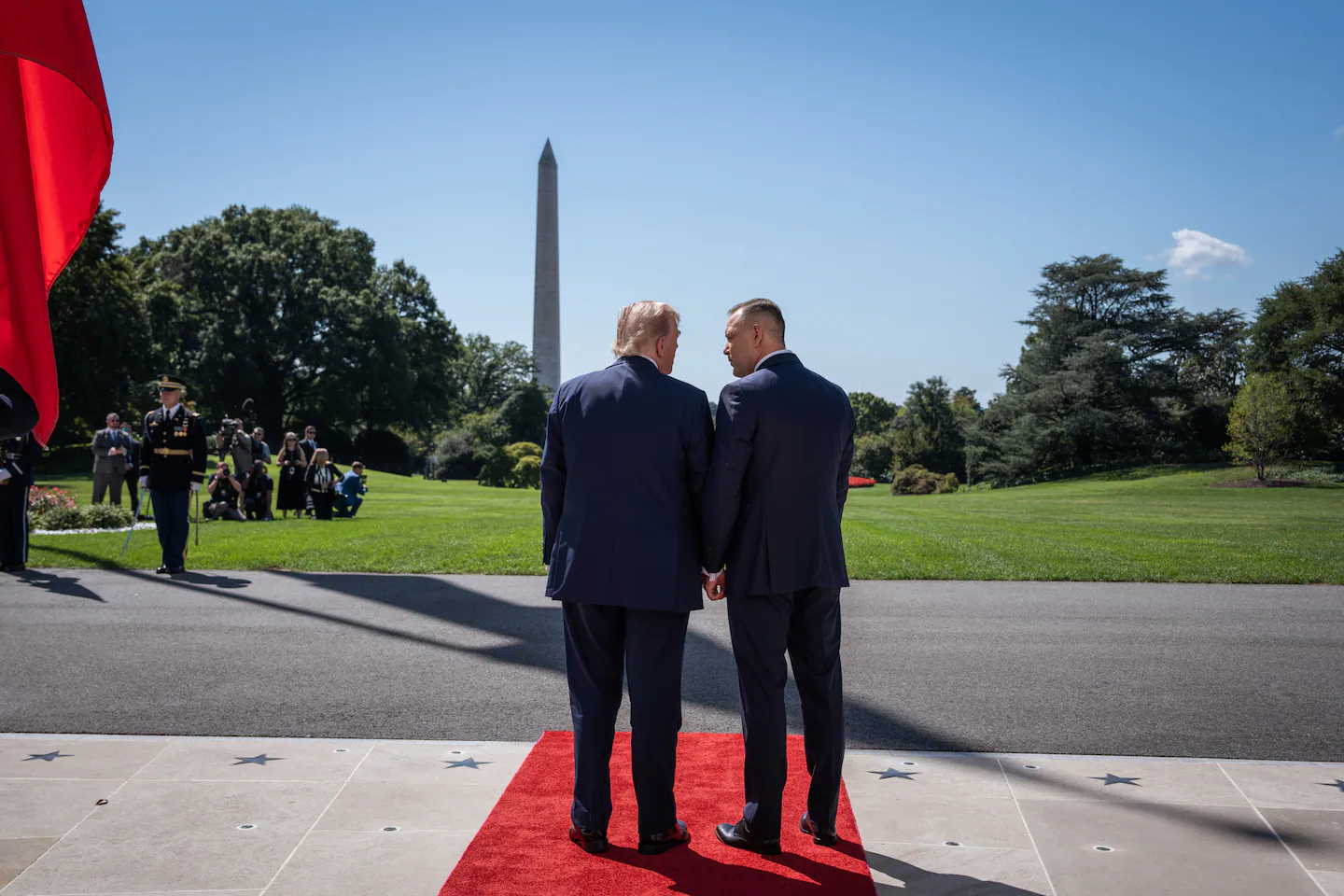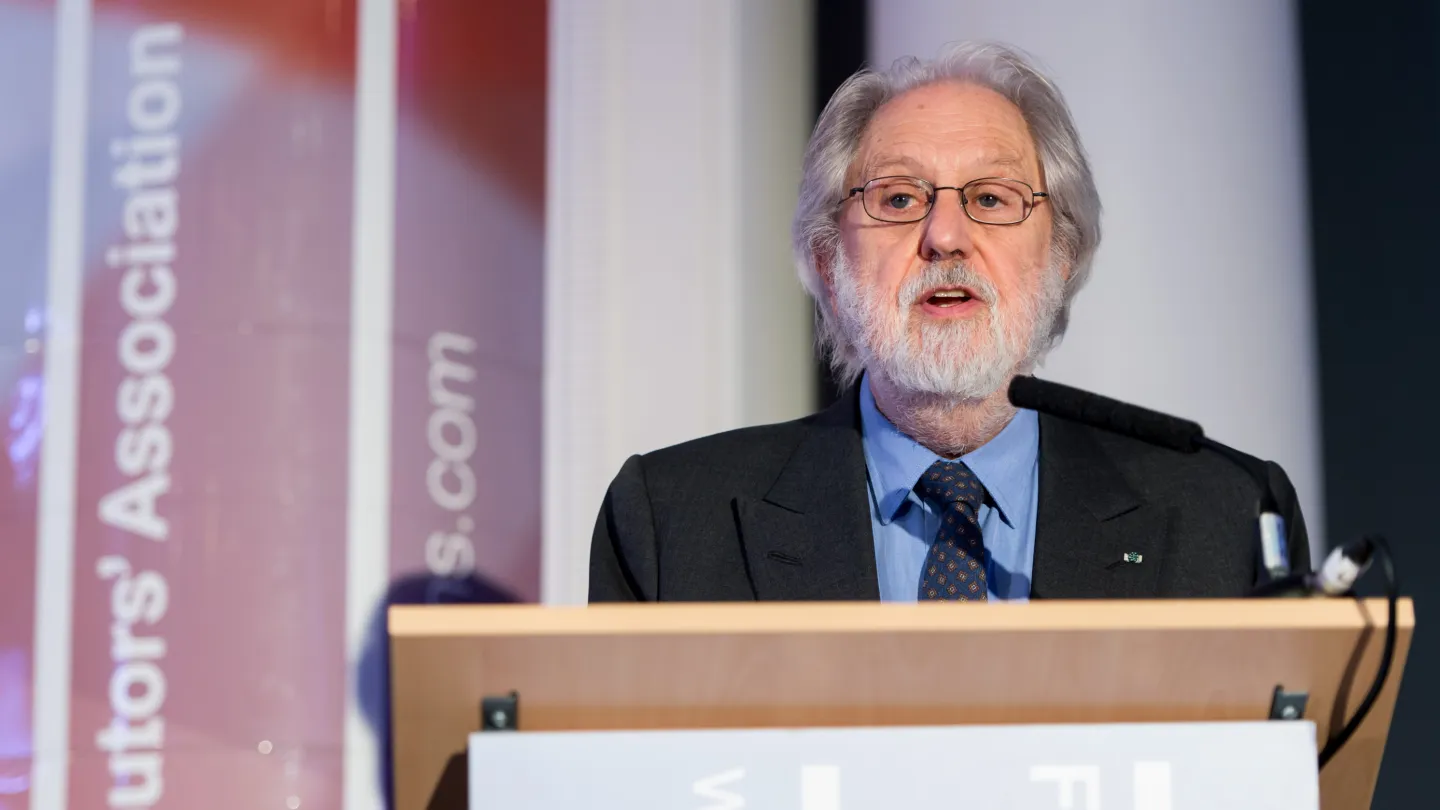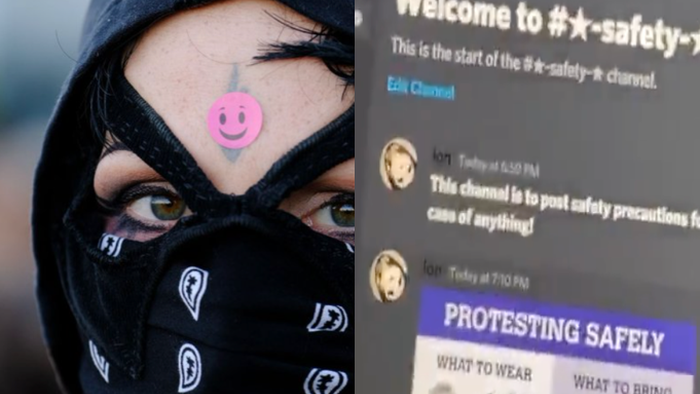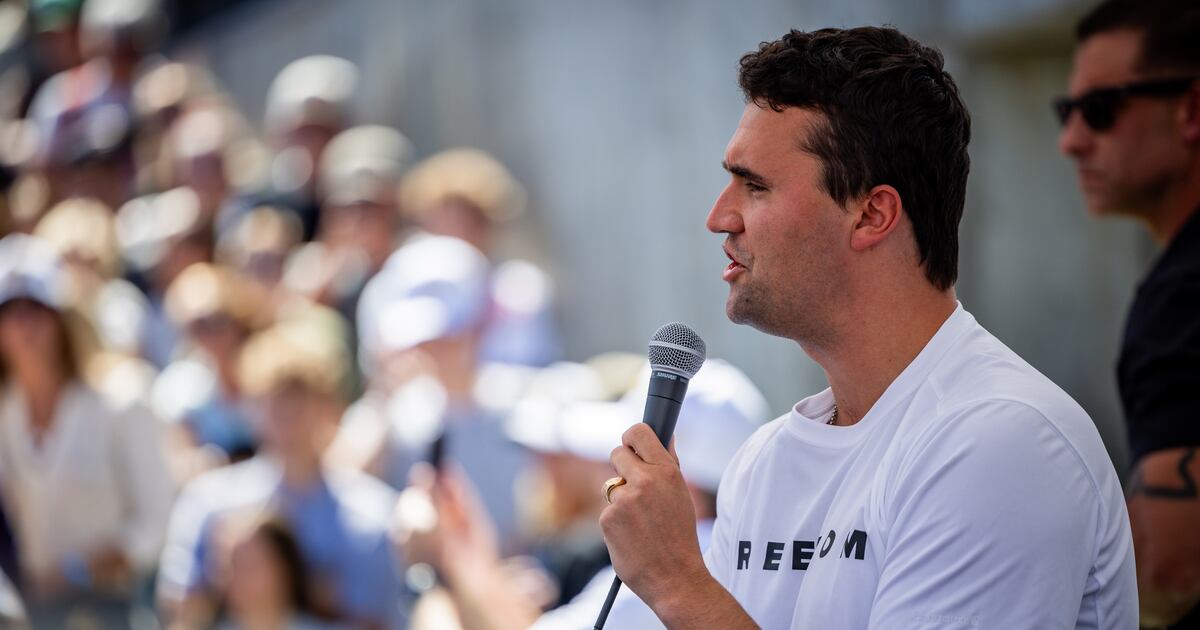
In the months since Trump took office, other administration officials have declared their support for right-wing parties in nearly every country in Europe, including Britain, the Czech Republic, France, Hungary, Italy, the Netherlands, Romania, Slovakia and Spain.
Those parties, the Trump officials said, represent a so-called civilizational nationalism that favors national identity, strong leaders, Judeo-Christian values, traditional gender roles, and anti-migrant and anti-Islam policies. The American conservatives see them as the best antidote to the liberalism that they regard as a threat that undermines Western security.
The killing of activist Charlie Kirk and the Trump administration’s response to it in recent days has fueled the ideological battle. Trump and his officials, while demanding free speech for the right, have escalated efforts to crack down on what they call hate speech from the left, celebrating the silencing of popular critics like late-night host Jimmy Kimmel this past week. The Federal Communications Commission chair, Brendan Carr, also suggested that regulators could use their powers against ABC, the network that airs Kimmel’s show, and the local stations that carry it.
Some Europeans have expressed worry that Trump’s and his allies’ effort to silence liberal criticism, especially through popular pressure driven by social media, will be a model for their own far-right and populist parties, which are already being made more credible by support from Washington.
In Warsaw during Poland’s presidential campaign, Kristi Noem, the U.S. secretary of homeland security, told conservatives in May, “We do not have the time to dance around the dangers that threaten our societies.” Europe’s leaders are “weak,” she warned, and they “have destroyed our countries because they have led by fear. They have used fear to con people, and they’ve used fear to promote an agenda that is not what liberty is about, that is not what freedom is about.”
She openly backed Karol Nawrocki, the candidate of a far-right Polish party that wants an altered European Union. Trump welcomed Nawrocki to the White House during the campaign, which Nawrocki won, and again this month.
The Trump administration’s broadsides against Europe’s liberals amount to a battle over culture, ideology and trade that is so fierce that some European leaders and officials increasingly believe that the president’s aides are pressing for regime change in Europe. They see the Americans as aiming to replace governments of the center-left and center-right with coalitions of the far right that align with their ideas of nation, religion, gender and cultural values.
They cite not only America’s incursions in elections but also the meetings of Trump allies with like-minded European legislators; their efforts to undercut European regulations; their interference in Greenland, a territory of the NATO ally Denmark; and attacks on French and Romanian courts for decisions that went against far-right presidential candidates.
European officials acknowledged that Trump and his advisers were free to disparage their worldviews and other perceived flaws. But while Russia interferes secretly in European elections, they said they considered the Trump officials’ open intrusions in domestic politics a violation of norms among allies.
Senior European officials nonetheless want to keep Washington on their side for security reasons. European leaders who publicly flatter Trump and Vance are privately furious about their interventions in domestic affairs, a senior European official said, speaking on condition of anonymity to discuss private opinions.
Robin Niblett, former director of the nonpartisan research group Chatham House, said, “Vance and his followers believe they are in the vanguard of a revolution in Western identity to a true one, which is a Judeo-Christian West that is being diluted and undermined by a valueless new normality propagated by self-questioning elites.”
“So, yes,” he added, “they are after regime change in Europe.”
Luuk van Middelaar, a Dutch historian and former European official, compared the Trump officials to a right-wing Comintern, the Soviet organization that promoted world communism.
“Europeans underestimate the potency of the conservative ecosystem in the U.S.,” he said. “The ideologues are in place and want to use this power to build a new Western order.”
The White House and Vance declined to comment. His aides pointed out that he had publicly denied any intention of interfering in European elections and that he had met with leaders of varying political views, including before his Munich speech with Olaf Scholz, then Germany’s chancellor.
A ‘Civilizational Alliance’
The Trump administration’s feelings about Europe were exposed when messages surfaced from a private group that had inadvertently included a journalist. Defense Secretary Pete Hegseth called the Europeans “PATHETIC” after Vance wrote, referring to strikes in Yemen, “I just hate bailing Europeans out again.”
But Trump’s aides and followers are hardly shy about their aims.
On a site maintained by the State Department, Samuel D. Samson, a senior adviser for the Bureau of Democracy, Human Rights, and Labor, published an essay in late May calling for politically like-minded alliances in Europe.
European governments are waging “an aggressive campaign against Western civilization itself” that is undoing its “anchors of nationhood, culture and tradition” and “increasingly affects American security,” Samson wrote, saying that he had been inspired by Vance.
With leaders of the European nationalist right, Trump officials want to establish a “civilizational alliance,” in Samson’s words, that would be “forged in common culture, faith, family ties, mutual assistance in times of strife, and above all, a shared Western civilizational heritage.”
Other administration officials have condemned the criminal conviction of Marine Le Pen, the leader of France’s far-right National Rally party. And they criticized British and other European efforts to regulate hate speech. While he was advising Trump, Elon Musk called for Germans to throw out their centrist parties and elect the Alternative for Germany.
That party’s February meeting with Vance bolstered its credibility and privately infuriated the center-right candidate, Friedrich Merz, who only narrowly won election, said a senior German official, speaking on condition of anonymity because of the sensitivity of the matter.
Some European officials say they think that Vance and his younger, more conservative and ideological followers are likely to inherit the Republican Party.
Rem Korteweg, a Dutch political analyst with the nonpartisan Clingendael Institute, said that Vance and other American conservatives had made clear that their goal is “not just about defense spending and the trade balance, but it’s about undercutting what MAGA officials see as a nefarious, globalist, ‘woke’ project that undermines American power.”
Taking Aim at the EU
The European Union itself is a prime target for Trump supporters. Kevin D. Roberts, president of the conservative Heritage Foundation and an ally of the Trump administration, regularly calls the European Union “the most aggressive and dangerous enemy of the nation-state anywhere in the world.” He has accused its leaders of overriding democratic governance and deliberately choosing slow growth in favor of welfare spending and regulation.
“Trump’s strategy toward Europe is being developed, but it’s revolutionary,” said Nile Gardiner, director of the Margaret Thatcher Center for Freedom at the Heritage Foundation. “The big picture is the defense of Western civilization itself, and this is the first administration to challenge the European project.”
He called Trump “America’s first Euroskeptic president.”
Trump’s tariff demands, together with his insistence that Europe take responsibility for the Ukraine war and the country’s future, are damaging European economies already hit by high debt and slow growth.
Sabine Weyand, an EU trade official, said recently that European concessions on trade were not based on negotiation but on fear — the need to maintain security cooperation with the United States while Russia wages war in Ukraine.
“There is a land war on the European continent, and we are entirely dependent on the United States,” she told the Süddeutsche Zeitung daily in Germany. “The member states were not willing to take the risk of further escalation that would result from European countermeasures.”
Her unhappiness was evident and is widely, if privately, shared among European officials who no longer believe the United States is a reliable ally. “The post-1945 economic order is gone forever,” Weyand said.
The Heritage Foundation is building ties with groups in Europe with similar viewpoints, like the Hungarian think tank the Mathias Corvinus Collegium.
Europe needs to shed its complacency, said Pierre Vimont, a former French ambassador to Washington. European leaders “are losing the chance to mold whatever system replaces the post-1945 order,” he said. “There is a need for a vision that would not lose track of universal rights and values.”



